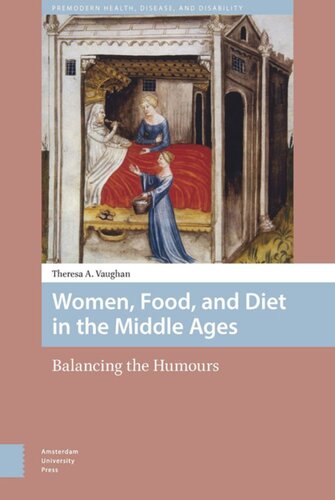

Most ebook files are in PDF format, so you can easily read them using various software such as Foxit Reader or directly on the Google Chrome browser.
Some ebook files are released by publishers in other formats such as .awz, .mobi, .epub, .fb2, etc. You may need to install specific software to read these formats on mobile/PC, such as Calibre.
Please read the tutorial at this link: https://ebookbell.com/faq
We offer FREE conversion to the popular formats you request; however, this may take some time. Therefore, right after payment, please email us, and we will try to provide the service as quickly as possible.
For some exceptional file formats or broken links (if any), please refrain from opening any disputes. Instead, email us first, and we will try to assist within a maximum of 6 hours.
EbookBell Team

5.0
78 reviewsWhat can anthropological and folkloristic approaches to food, gender, and medicine tell us about these topics in the Middle Ages beyond the textual evidence itself? Women, Food, and Diet in the Middle Ages: Balancing the Humours uses these approaches to look at the textual traditions of dietary recommendations for women's health, placed within the context of the larger cultural concerns of gender roles and Church teachings about women. Women are expected to be nurturers, healers, and the primary locus of food provisioning for families, especially when considering the lower social classes which are typically overlooked in the written record. What can we know about women, food, medicine, and diet in the Middle Ages and how does the written medical tradition interact with folk medicine and other cultural factors in both understanding women's bodies and their roles as healers and food providers.